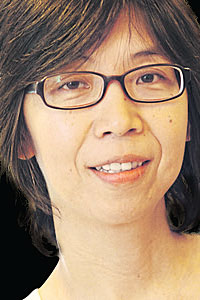When I visited Singapore for the first time almost two decades ago, the ageing workforce came to me as a surprise. I was not just curious as to why the government let old people work, but also why these senior citizens needed to keep themselves busy in this way. That was my perception of Singapore when I was in my 20s.
Later, I learned that it's common in many other countries to have a workforce full of older people. In Japan, for example, it is commonplace.
All this happened because I judged other countries according to my limited context. In Thailand, people above the age of 60 are basically considered senior and retired. Most Thai senior citizens prefer to spend their retired life at home with family, taking care of their garden or doing what they love to do. Elderly people who still work are deemed pitiful. Some of them work out of necessity and they can't have an easy retirement to socialise with friends.
The world has changed. Ageing populations are a worldwide phenomenon, and Thailand is no exception. We are currently ranked the world's third most rapidly ageing population, with the number of people aged 60 and above accounting for 13% of the population.
Instead of feeling pitiful towards them, I appreciate senior citizens who keep on working and delay retirement, as long as they keep their physical and mental health and are happy with their jobs.
Many older people become healthier and happier after retirement, as they no longer have work pressures, but many that I have met languish after they stop working. They can't adjust to the sudden change in routine. Some who cannot familiarise themselves with more leisure time choose to delay retirement because they want to keep themselves busy.
In Singapore, the age of retirement is 62, and most people have to work until they are 70-years-old. I recently dropped by a coffee shop when in Singapore. All three workers at the shop were above the age 60 and I could sense their pleasure in working from interactions between themselves and with customers.
Delayed retirement in Singapore is viewed as a way to ensure financial security in old age. And more importantly, I think working keeps these old people satisfied with themselves. No matter what job they are doing, they are not regarded as a social burden. Yet I don't want to say those who give up working are a problem as long as they are content with their retirement.
In Thailand, the retirement age is 60, and unfortunately many companies reduce that to 55. In Singapore, it is believed employment at an older age expands the nation's labour pool, accelerates productivity, increases national income and raises living standards, for both workers and retirees. If you are a Thai civil servant, retirement can be guaranteed with a government pension, but in the case of the private sector, the quality of employee welfare varies. Most small- and medium-sized firms don't offer a provident fund to staff. I can't imagine how these people survive after retirement without savings. Certainly, the monthly 600 baht pension given by the government is nowhere near sufficient.
Thailand can hardly be compared with Singapore in terms of its ageing workforce. All stakeholders in Singapore are collaborating effectively to overcome the challenges posed by an ageing workforce, with an attempt to sustain economic growth and national competitiveness. Thailand should at least try to learn from the approach taken by neighbouring countries. To work or not to work should be judged by physical and mental capability. Active older people should still be given opportunities.
By 2040, senior citizens in Thailand will account for a quarter of the overall population. At that time, I will be one of them and thus my not-so-distant future needs to be carefully planned.
Sasiwimon Boonruang is a writer for the Bangkok Post's Life section.
